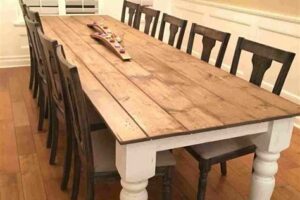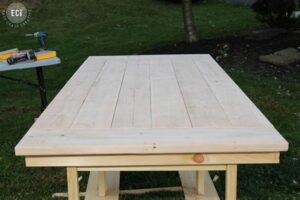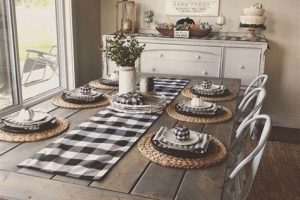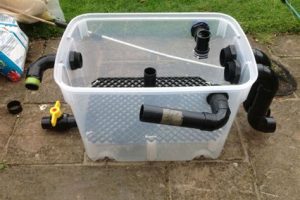Looking for creative and budget-friendly ideas to build a farm fence? Explore our collection of DIY farm fence ideas that are not only practical but also aesthetically pleasing. From traditional wooden fences to innovative wire mesh designs, find inspiration to secure your livestock, enhance privacy, and add rustic charm to your property. Discover step-by-step guides, helpful tips, and expert advice to create the perfect farm fence for your needs.
Are you looking to enhance the appearance and security of your farm while staying within a budget? Look no further than these innovative DIY farm fence ideas. With these creative solutions, you can transform your property into a haven for both livestock and aesthetics. Whether you’re a seasoned farmer or just starting out, these do-it-yourself projects will not only save you money but also allow you to showcase your unique style. From repurposing materials to incorporating modern designs, these fence ideas are sure to catch the eye of anyone passing by. So, grab your tools and get ready to create a fence that is not only functional but also adds a touch of elegance to your farm.
Introduction
When it comes to protecting your farm and livestock, a sturdy and reliable fence is essential. However, building a farm fence can often be expensive if you hire professionals or purchase pre-made materials. That’s where DIY farm fence ideas come in handy. With a little creativity and some basic tools, you can construct a practical and attractive fence that not only provides security but also enhances the overall aesthetic of your farm.
1. Wooden Rail Fence
A classic and timeless option, the wooden rail fence is one of the most popular DIY farm fence ideas. It is relatively easy to install, and the rustic charm of wooden rails adds character to your property. Whether you opt for a simple split rail design or a more elaborate post-and-rail style, this type of fence offers both functionality and visual appeal.
2. Electric Fence
If you’re looking for a cost-effective and efficient way to contain your livestock, an electric fence might be the solution. This type of fence utilizes low-current electrical charges to deter animals from crossing the boundary. It can be easily installed using posts, insulators, and electric wires. Just make sure to follow the necessary safety precautions and check local regulations before setting up an electric fence.
3. Mesh Wire Fence
Mesh wire fences are a practical option for enclosing small animals or protecting specific areas of your farm. They are durable, cost-effective, and relatively easy to install. You can choose from various mesh sizes depending on the type of animals you want to keep in or out. Additionally, mesh wire fences are versatile and can be adapted to suit different terrains and farm requirements.
4. PVC Pipe Fence
If you’re looking for a lightweight and budget-friendly DIY farm fence idea, consider building a PVC pipe fence. PVC pipes are affordable, easy to handle, and resistant to weather conditions. You can create a variety of designs using PVC pipes, such as a traditional picket fence or a more modern and sleek style. This type of fence requires minimal maintenance and can be customized with different colors and finishes.
5. Woven Wire Fence
A woven wire fence is an excellent choice if you need a secure enclosure to keep your livestock safe. It consists of vertical and horizontal wires woven together to create a sturdy and robust barrier. Woven wire fences are highly versatile and can be adapted to different animal sizes and types. Although installation requires some expertise, the longevity and functionality of this fence make it a worthwhile investment.
6. Split Rail Fence
Known for its rustic charm and simplicity, the split rail fence is a popular choice among farmers. It typically consists of wooden posts and horizontally placed rails, creating an open and airy boundary. Split rail fences are relatively easy to construct, and the natural materials blend seamlessly with the surrounding landscape. This fence style is perfect for defining property lines or separating larger areas within your farm.
7. Barbed Wire Fence
For those seeking a high-security option, a barbed wire fence is a practical choice. It acts as a strong deterrent, effectively keeping out intruders and preventing livestock from escaping. Barbed wire fences consist of tightly twisted strands of wire with sharp barbs evenly spaced along the length. However, keep in mind that barbed wire fences require caution during installation and maintenance due to their potentially harmful nature.
8. Living Fence
If you’re looking to add a touch of greenery to your farm while still providing security, consider a living fence. This type of fence utilizes plants, shrubs, or trees to create a natural boundary. Living fences offer numerous benefits, including noise reduction, windbreak, and habitat for wildlife. Popular plant options for living fences include hedges and fast-growing trees like bamboo or willow.
9. Farm Gate
While not technically a fence, a farm gate is an essential component of any farm enclosure. It provides access for vehicles, equipment, and livestock. Farm gates come in various designs and materials, such as wood, metal, or even PVC. Consider the functionality, durability, and aesthetics when choosing a farm gate that complements your DIY farm fence.
10. Decorative Accents
Once you have constructed your DIY farm fence, don’t forget to add some decorative accents to enhance the overall appeal. Consider painting the fence with vibrant colors, attaching hanging flower pots, or incorporating ornamental elements. These small details can transform a simple fence into an eye-catching feature that adds charm and personality to your farm.
Conclusion
Constructing a farm fence doesn’t have to be a daunting task or a drain on your finances. With these DIY farm fence ideas, you can create a practical and visually appealing enclosure that meets your specific needs. Remember to prioritize safety, choose materials that withstand the elements, and consider the overall aesthetic of your farm. Happy fencing!
DIY Farm Fence Ideas: Enhance Your Property’s Safety and Aesthetics
When it comes to securing your farm and adding a touch of charm to your property, choosing the right fence is crucial. DIY farm fence ideas offer a wide range of options that not only enhance the safety of your animals but also add to the overall aesthetics of your farm. Whether you prefer a classic wooden fence or a modern PVC design, there is a solution to suit your needs. Let’s explore some of the most popular DIY farm fence ideas and their benefits.
1. Traditional Wooden Fencing: Timeless Charm and Durability
To achieve a rustic and timeless look, traditional wooden fencing is an excellent choice. Constructed using sturdy and weather-resistant materials such as cedar or pressure-treated wood, these fences offer durability that can withstand the test of time. Additionally, blending different heights and styles can create a visually appealing and functional farm fence, adding both security and character to your property.
2. Electric Fencing: Efficient and Reliable Animal Control
For livestock owners looking for efficiency and flexibility, electric fencing is a top choice. Easy to install and cost-effective, electric fences provide a reliable means of containment. However, it is essential to ensure proper grounding, regularly inspect connections, and educate yourself on local regulations for safe use.
3. Post and Rail Fencing: Aesthetically Pleasing and Open Boundary
Post and rail fences offer a perfect blend of aesthetics and functionality. With their semi-open boundary design, these fences are ideal for larger properties or perimeter fencing. They allow improved visibility while effectively containing animals. Utilizing sturdy materials like round or split cedar or pressure-treated pine ensures a durable and low-maintenance farm fence.
4. Wire Mesh Fencing: An All-Purpose Solution for Farm Security
If you’re looking for versatility and visibility, wire mesh fencing is an excellent choice. This option is suitable for a variety of applications, from small livestock enclosures to garden fencing. It is durable, long-lasting, and relatively easy to install. Opting for galvanized or vinyl-coated wire mesh adds strength and resistance to rust or corrosion.
5. PVC Fencing: A Low-Maintenance, High-End Look
PVC fences provide a sleek and contemporary aesthetic without compromising functionality. They come in various styles, colors, and heights, allowing you to choose a design that complements your property’s overall look. PVC fences require minimal maintenance and are resistant to weather and pests, ensuring long-lasting durability.
6. Barbed Wire Fencing: Superior Security for Large Livestock
When it comes to securing larger animals or deterring potential predators, barbed wire fencing is an effective solution. The sharp, pointed wire strands act as a deterrent and provide an additional layer of protection. However, it is crucial to understand local regulations and safety guidelines to ensure safe installation and use.
7. Split Rail Fencing: Cost-Effective and Charming Boundaries
For those looking for a cost-effective way to define their property boundaries while maintaining an open and welcoming appearance, split rail fences are an ideal choice. With their simple yet classic design, these fences are perfect for larger pastures and rural settings. Depending on your preferences and budget, you can construct them using either wood or vinyl materials.
8. Woven Wire Fencing: Versatile and Long-Lasting
Woven wire fences offer versatility and strength, making them perfect for containing various types of livestock. The tightly woven pattern prevents animals from squeezing through, while the fence’s durability ensures years of reliable use. Opting for high-tensile woven wire provides added strength and longevity.
Before undertaking any DIY fence project, it is crucial to thoroughly research local zoning regulations, consult with professionals if needed, and prioritize safety. These steps will ensure a successful and secure farm fence installation that enhances both the safety and aesthetics of your property.
DIY Farm Fence Ideas: A Professional Perspective
When it comes to setting up a farm fence, there is no doubt that having a sturdy and reliable barrier is of utmost importance. As a professional in the field, I have witnessed the benefits of well-designed fences firsthand. In this article, I will share some expert insights and practical ideas to help you create an effective farm fence using DIY methods.
1. Research and Planning:
- Start by conducting thorough research on the type of fencing materials available and their suitability for your specific needs.
- Consider factors such as animal containment requirements, weather conditions, and the overall layout of your farm.
- Take accurate measurements and map out your fence lines before proceeding with the construction.
2. Choosing the Right Materials:
- Select high-quality materials that are specifically designed for farm fencing, such as treated wood, welded wire, or electric tape.
- Consider factors like durability, maintenance requirements, and cost-effectiveness when making your material choices.
- Ensure that your chosen materials comply with local regulations and standards for farm fencing.
3. Building a Solid Foundation:
- Start by digging post holes at regular intervals along your fence line.
- Ensure that the depth and width of the holes are adequate to provide stability and support.
- Use concrete to secure the fence posts firmly in place, allowing sufficient time for it to set before proceeding.
4. Proper Installation Techniques:
- Follow manufacturer instructions and best practices for installing your chosen fencing materials.
- Use appropriate hardware such as nails, screws, or clips to secure the fencing materials to the posts.
- Pay close attention to tensioning techniques, especially when working with electric tape or wire, to ensure proper functionality.
5. Regular Maintenance:
- Once your farm fence is in place, create a regular maintenance schedule to keep it in optimal condition.
- Inspect the fence periodically for any signs of wear, damage, or loose components.
- Repair or replace any damaged sections promptly to maintain the integrity and effectiveness of the fence.
6. Consider Professional Assistance:
- If you are unsure about your DIY capabilities or have a large-scale fencing project, consider seeking professional assistance.
- A skilled farm fence installer can provide valuable insights, expertise, and ensure the job is done efficiently and effectively.
- Professional assistance can save you time, money, and potential headaches in the long run.
By following these professional tips and ideas, you can create a durable and functional farm fence that meets your specific needs. Remember, a well-designed fence not only enhances the safety and security of your animals but also adds value to your farm. Happy fencing!
Thank you for taking the time to visit our blog and explore the world of DIY farm fence ideas. We hope that you have found this article informative and inspiring, as our goal is to provide you with valuable insights and practical tips to help you create a functional and aesthetically pleasing fence for your farm. Whether you are a seasoned farmer or someone who is just starting out, we believe that these ideas can help you enhance the overall look and functionality of your property.
As you may know, a well-designed farm fence serves multiple purposes. It not only defines the boundaries of your property, but also provides security and protection for your livestock and crops. Additionally, a thoughtfully designed fence can add charm and character to your farm, creating a welcoming environment for both visitors and animals alike.
Throughout this article, we have highlighted various DIY farm fence ideas that cater to different needs and preferences. From traditional wooden fences to modern wire mesh designs, there is something for everyone. We have also discussed the importance of considering factors such as budget, materials, and maintenance when choosing the right fence for your farm.
In conclusion, we hope that this article has provided you with valuable insights and inspiration for your DIY farm fence project. Remember to carefully assess your needs, consider your budget, and select the most suitable materials before embarking on this endeavor. Whether you choose a classic picket fence or a sturdy electric fence, always prioritize safety and functionality while keeping aesthetics in mind.
Thank you once again for visiting our blog. We appreciate your time and interest in our content. Should you have any further questions or require additional guidance, please do not hesitate to reach out to us. Best of luck with your DIY farm fence project!
.
People also ask about DIY farm fence ideas:
- What are some popular types of farm fences?
- Wooden board fences
- Electric fences
- Barbed wire fences
- Woven wire fences
- High-tensile wire fences
- PVC fences
- How do I build a wooden board fence for my farm?
- Determine the layout and measurements of your fence.
- Mark the fence line with stakes and string.
- Dig post holes at regular intervals along the fence line.
- Install wooden fence posts in the holes and secure them with concrete.
- Attach horizontal boards to the posts using nails or screws.
- Add a top rail for additional support and aesthetics.
- Paint or stain the fence for protection and visual appeal.
- Are electric fences effective for containing livestock?
- How do I install an electric fence on my farm?
- Plan the fence layout and select the appropriate energizer.
- Install corner posts and brace assemblies.
- Run the electric fence wire or tape along the desired fence line, attaching it to insulators on the posts.
- Connect the wire or tape to the energizer, grounding system, and any necessary gates.
- Test the fence to ensure proper functionality.
- Regularly maintain the fence by checking for damage, vegetation interference, and keeping the energizer in good condition.
- What factors should I consider when choosing a farm fence?
- Type of animals you need to contain
- Land terrain and size
- Budget
- Maintenance requirements
- Appearance and aesthetic preferences
- Local regulations and restrictions
Some popular types of farm fences include:
To build a wooden board fence for your farm, follow these steps:
Yes, electric fences can be highly effective for containing livestock. They create a psychological barrier that trains animals to avoid touching the fence. However, proper installation and maintenance are crucial for optimal functionality.
To install an electric fence on your farm, follow these steps:
When choosing a farm fence, consider the following factors:






